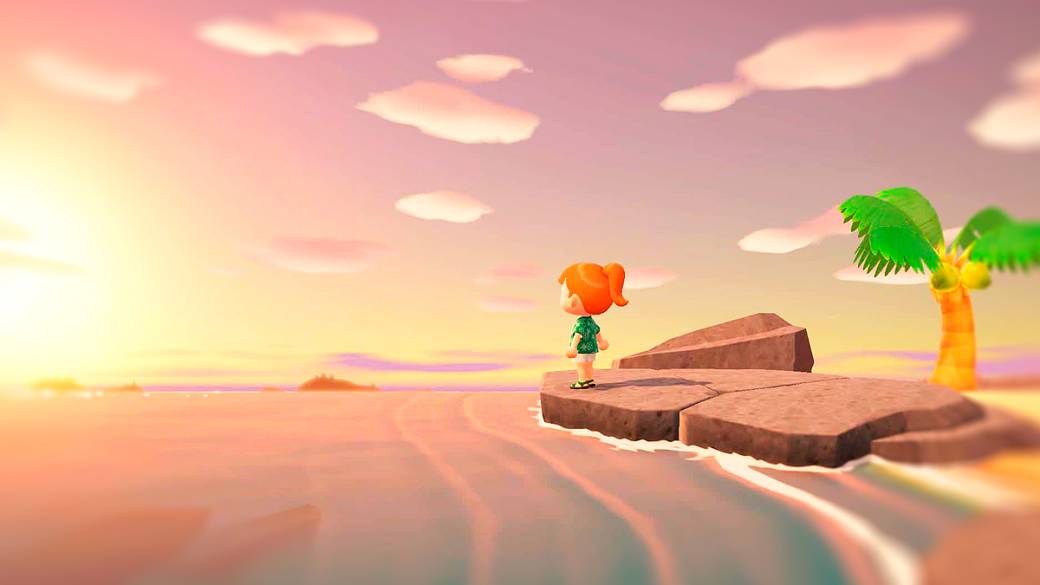
Animal Crossing: New Horizons recovers a saga from which we must learn to build a more collaborative and sustainable society after quarantine.
No one doubts it. Even those who question the artistic value of ludofiction do not question it: video games change lives. Pikachu, Kratos, Bayonetta and many other heroes lead a cultural industry with a notable impact on the vision that many have of the world. Whoever writes these lines is no exception and inherited much of his love for nature and his spirit of overcoming the battles and adventures that Pokemon brought him. Like cinema for our parents, the video game has played a key role in our way of understanding life. And the same will be true for generations to come. Now we are presented with a unique opportunity to shape the world based on the teachings of a very special video game: Animal Crossing.
The coronavirus crisis has shown many things, but perhaps the most important is the need to rebuild society. From COVID-19 we must learn that public services are untouchable, that our family deserves more time and better reconciliation than those that the stress of routine allows us to dedicate to it, that cooperation contributes more than competition, that the planet needed a respite like this in terms of emissions … And many other vital lessons. All of them, although many have not yet noticed, present in a video game saga that has been urging us to change our rhythms of life for almost two decades. If we really need to rethink our society after confinement, I certainly think we have a lot to learn from Animal Crossing and its latest iteration, New Horizons.
Learning from Animal Crossing
The quintessential bucolic franchise was born as a result of a Japan in crisis, both economic and in values. The villager's calm tempo yearned to counterbalance the insane speed of a society totally disconnected from its rural, spiritual and reflective past. In a way, Animal Crossing arises as a countercultural response to a climate of constant stress and tension. Its foundational anecdote, that of a game created so that a father —Katsuya Eguchi, also the father of the series— who just happens to be at home to share a hobby with his children, perfectly defines what Animal Crossing is and why it exists.
Two decades have passed since the first title starring Tom Nook and company, but terms like workaholism and desperate currents like slow life are the order of the day. Twenty years later, what surprises us most about a pandemic is having to spend a few weeks living with our family. So long after, we have learned nothing. However, I appeal to the double meaning of crisis – a problem, but also an opportunity – for the situation arising from the coronavirus to act as a before and after, and, in the midst of New Horizons, we should listen to what Animal Crossing has to tell us.
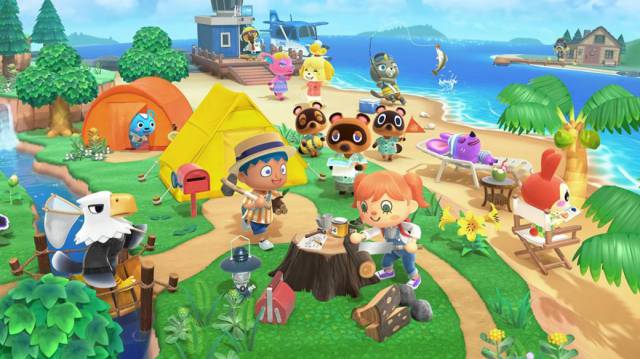
Towards the town-village
The first of the lessons left by Cinnamon and the rest of anthropomorphic animals is related to glocalization. This term so deeply rooted in Japanese culture since the 1980s can be summed up in one phrase: think globally and act locally. Without giving up the open and global mindset, we must adapt and respond to local needs. One way to apply this logic, which Animal Crossing uses, is to organize in small communities fundamentally based on cooperation and sustainable trade. The development of smaller urban centers, but also stronger, would avoid the concentration of economic and population activity in large cities, and therefore solve several problems at once. The depopulation and impoverishment of rural areas or the overcrowding of capitals such as Madrid and Barcelona are some examples.
Animal Crossing does not renounce the benefits of globalization, such as spending time with people from all over the world, visiting towns around the globe or receiving products of a wide cultural variety in stores such as that of the Handyman Sisters. However, it gives weight to local commerce, proposes a sustainable urban development, exercises a close policy and encourages good coexistence between neighbors. On the other hand, our day-to-day life increasingly reduces the importance of interpersonal relationships, the products of kilometer zero and the roots in our environment.
Perhaps this way of thinking prevents the development of gigantic metropolises and multimillion-dollar economic empires, but it also implies winning in coordination, solidarity and ultimately quality of life. When the confinement is over and our lives have to be regained, we will have a unique opportunity, like Animal Crossing, to put people at the center instead of companies.
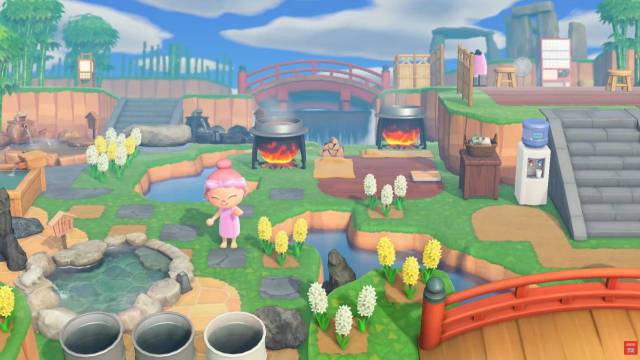
For Cinnamon: let's take care of the environment
Another of the great reflections that the Nintendo series has bequeathed since its origins is the care of nature. A week of stoppage in Spain due to the coronavirus has been enough to drastically reduce pollution. Air pollution in Madrid has decreased by up to 35% after a few days of confinement, according to the city council itself. In Barcelona, nitrogen dioxide concentrations were halved in just three days in Barcelona, according to the Generalitat. It is not necessary to coincide with those who accuse humanity of being the true pandemic of the Earth, but it is difficult to deny that our way of life acts as a virus that gradually weakens the planet. There we have a lot to learn from Animal Crossing.
Villagers prioritize responsibility and sustainability in their consumption, their production, their urban development and their relationship with the environment. The link between progress and pollution is complex to dissolve, but we must begin to prioritize city models that are more similar to what Animal Crossing suggests compared to large cities. Small towns facilitate the creation and protection of green spaces, sustainable mobility, environmentally friendly urban development and many other measures necessary to overcome the climate emergency. With dynamics such as teleworking, the provision of infrastructures and support for the strategic sectors of each area, it is feasible to replace megacities with towns at the forefront. Although in a utopian and somewhat naive way, Animal Crossing offers keys that we would do well to attend to.
Recreating the rhythms and logics of Animal Crossing after quarantine would also have numerous benefits for our physical and mental health. With capitals polluted to dystopian limits, emissions kill around 10,000 people a year in Spain.
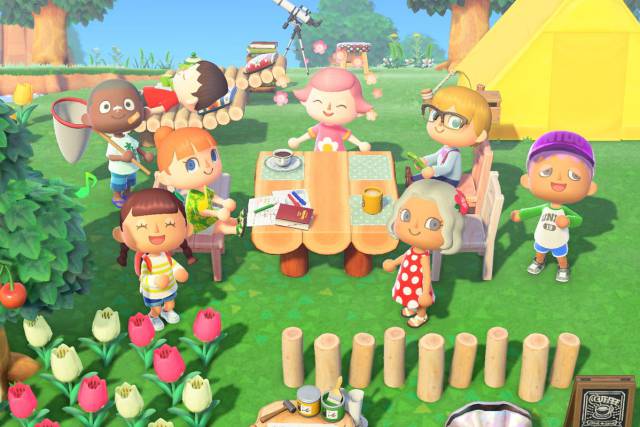
Do like Tórtimer: join the slow life
The saturation of large cities, likewise, induces stress problems. "The risk of anxiety disorders is 21% higher for city dwellers, who also increase their chances of suffering from character disorders by 39%," explains Douglas Mental Health University Institute researcher Jens Pruessner. The expert points out that the incidence of schizophrenia "is almost double in people who have been born and raised in cities."
All this invites us to think that we would do well to adopt the slower, almost bucolic tempo that characterizes the Nintendo saga. Contact with nature, a quiet rhythm, easy mobility and the proximity of work, leisure and private life centers to facilitate reconciliation are some of the key elements in these digital populations.
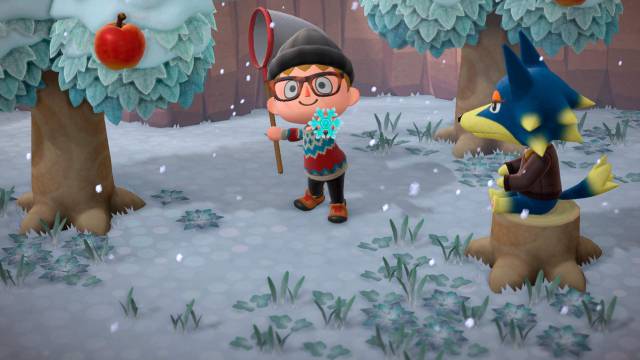
New horizons after the pandemic
"When this epidemic ends, we will have the memory," reflected the Chinese writer Yan Lianke in a letter to his students at the University of Hong Kong. Before the messages of austerity and economic recovery flood the news, we must reflect on the causes and consequences of this crisis. The ego cannot dominate us and we have to admit that we have a lot to learn. It is never too late for this, however, and we have plenty of examples to welcome to progress in a sustainable way and be better prepared in situations like this. Animal Crossing and its philosophy are good mirrors in which to look for it.
The dynamics of collaboration – with its climax in public policies -, the firm commitment to more contained and sustainable city models, respect for the environment and slower lifestyles are some of the examples to be inspired to build post-quarantine society. Just turn on our Switch and take good note of the furro’s way of life.

